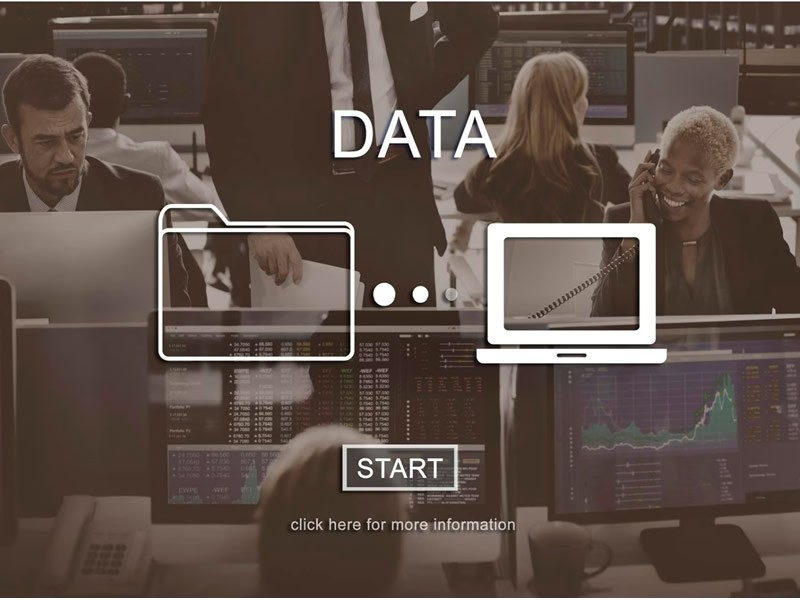Insight Blog
Agility’s perspectives on transforming the employee's experience throughout remote transformation using connected enterprise tools.
5 minutes reading time
(948 words)
How Virtual Data Rooms Can Help You in 5 Different Use Cases
The question stands, how can decision-makers and dealmakers minimize data thefts during large-scale data sharing in dealmaking, especially when there are multiple parties accessing corporate information?
According to the Fortune 500 CEO survey in 2021, almost 2/3 of the CEOs stated that cybersecurity threats are even more concerning than political instability and climate change. The concerns get stronger when it comes to mergers and acquisitions. That's because sharing and migrating top corporate secrets during M&A is risky.
The concerns these CEOs share are legitimate, as 2022 wasn't satisfactory in terms of data protection. Millions and billions of individuals were compromised in the United States and other parts of the world. Apart from M&A, other business spheres have had nightmares in terms of cyber crimes.
The question stands, how can decision-makers and dealmakers minimize data thefts during large-scale data sharing in dealmaking, especially when there are multiple parties accessing corporate information?
Virtual data rooms as a global deal management solution
Virtual data room software is already facilitating hundreds and thousands of complex financial and business transactions across the globe. A virtual or electronic data room is a certified, cloud-based business data repository that dealmakers, nonprofits, and commercial businesses use to share, store, exchange, or distribute data digitally.
In fact, virtual data room technology was originally an M&A management platform which later turned into an all-businesses solution. Online data room software simplifies different processes, such as data management, online communication, and task management in financial and business transactions.
Let's briefly review the top five practical use cases of virtual data rooms.
5 Most common use cases of online data room software
The usage of data room technology has become common in different industries and processes, including M&A, litigation, commercial real estate, capital raising, and life sciences.
1. Mergers and acquisitions
Data room technology was initially used to streamline mergers and acquisitions, and the M&A industry is still the biggest consumer of VDR technology.
Virtual data rooms can easily cover multiple aspects of any M&A transaction. From the pre-due diligence stage to post-merger integration, data rooms assist in high-volume data sharing, internal and external communication, and data protection.
Using an M&A data room software, dealmakers can ensure the following:
- 24/7 communication between stakeholders, board members, M&A teams, investors, potential buyers, legal advisors, investment banks, or private equities
- Smooth flow of information between buyers and sellers while making sure that there are no data leaks or thefts
- Maximum coordination during the post-merger integration phase
What's more, data room tools allow users to upload data according to due diligence checklists in VDRs, track deal progress, eliminate duplicate or repeat requests, and keep an eye on proceedings.
Many virtual data room providers have started or promoted M&A communities that educate dealmakers and businesses. Last but not least, data rooms are equally effective for any type of M&A transaction. Read on to get more insights on M&A types at https://mnacommunity.com/insights/forward-and-reverse-triangular-mergers/.
Follow us and access great exclusive content everyday: Follow us on Google News
2. Legal industry
The legal industry is arguably the second most common use case of data room technology. Lawyers are using VDRs for different reasons and in different fields.
A legal advisor, whether from the sell-side or buy-side, in an M&A transaction uses data room services to participate in the proceedings regularly, communicate with the employers, provide legal counsel, and share legal documents when necessary.
Additionally, corporate attorneys use virtual data rooms as a safe medium of communication and data sharing regularly. Lawyers also use the technology for internal data sharing and client communication. Data rooms like iDeals provide a library of digital legal forms to lawyers.
3. Real estate management
Virtual data rooms are commonly employed for commercial real estate management.
Realtors or real estate firms use the technology as a central place for:
- Secure data storage and management
- Managing all real estate projects in one place
- Communicating and sharing data with investors and partners
- Portfolio management
What's more, many data room providers offer free checklists for real estate projects. The checklists may include regulatory documents, acquisition documents, tenant and lease matters, litigation, financial matters, and zoning affairs.
You may also like: Best Apps for Employees: UPDATED 2022 – A Complete Guide
4. Capital raising
Whether it is an initial public offering or fundraising, a virtual data room has become a go-to option for thousands of fundraisers across the globe.
Just like due diligence in M&A, virtual data rooms act as the central point during fundraising. It connects fundraisers, investors, the public, and the company raising funds.
Most importantly, virtual data rooms keep corporate data safe even if the fundraising process goes on for months.
5. Life sciences
The life sciences or health industry has quickly become one of the biggest consumers of data rooms in the last few years. Research and development (R&D) companies use data rooms to protect important information in clinical trials and fundraising for their projects.
Similarly, medical practitioners and hospitals use the impeccable security of data rooms for customer data protection.
Free ebook: How To Get Your Intranet Off The Ground
Wrapping up
Data room providers have extended their services in almost all industries. Top virtual data room use cases include mergers and acquisitions, life sciences, litigation, fundraising, and real estate management.
Some of the best data rooms for the above-mentioned use cases include iDeals, Intralinks, and DealRoom. When choosing a virtual data room for your needs, opt for those that specialize in your industry specifically and make a data room comparison of a few providers to select the most fitting one.
Categories
Blog
(2660)
Business Management
(325)
Employee Engagement
(213)
Digital Transformation
(178)
Growth
(122)
Intranets
(120)
Remote Work
(61)
Sales
(48)
Collaboration
(39)
Culture
(29)
Project management
(29)
Customer Experience
(26)
Knowledge Management
(21)
Leadership
(20)
Comparisons
(7)
News
(1)
Ready to learn more? 👍
One platform to optimize, manage and track all of your teams. Your new digital workplace is a click away. 🚀
Free for 14 days, no credit card required.













